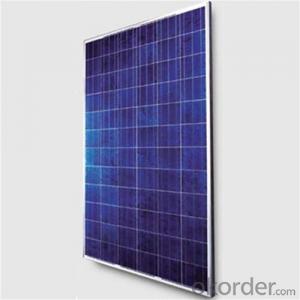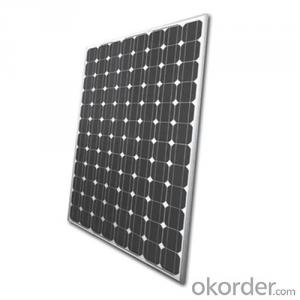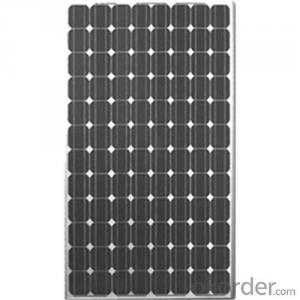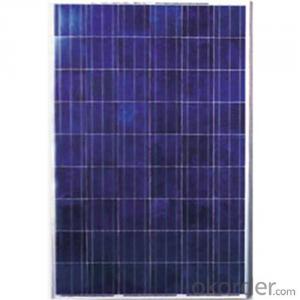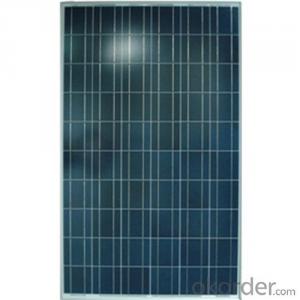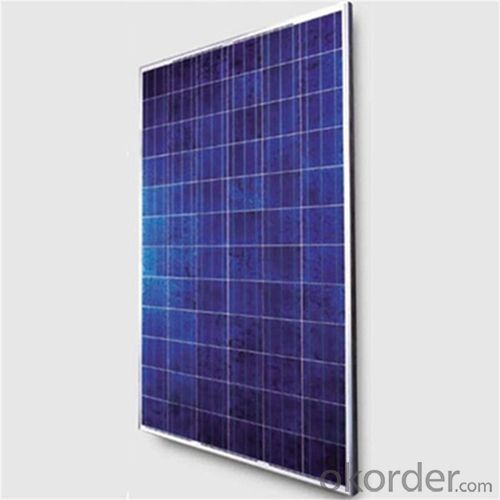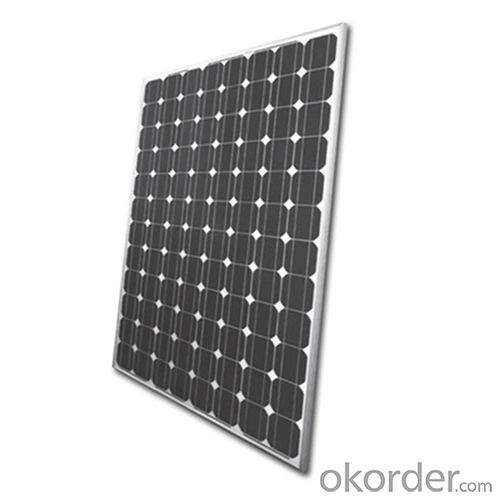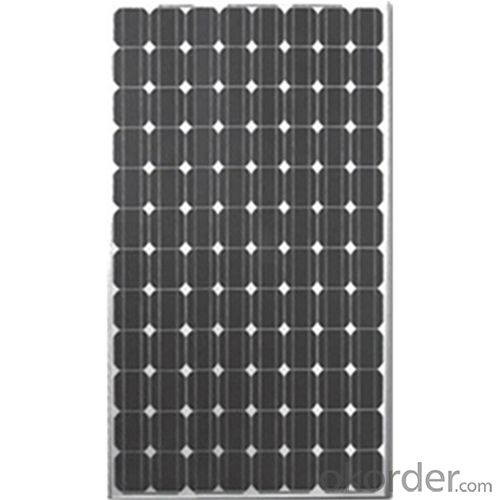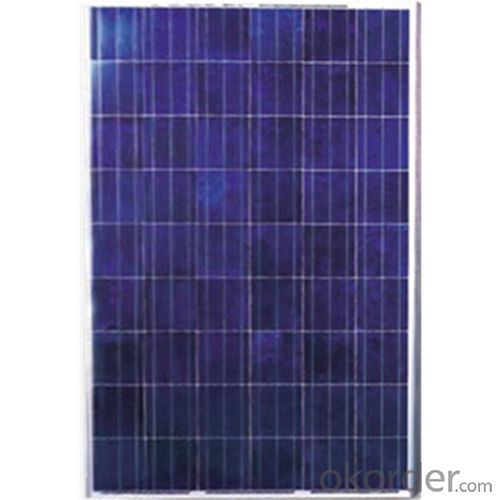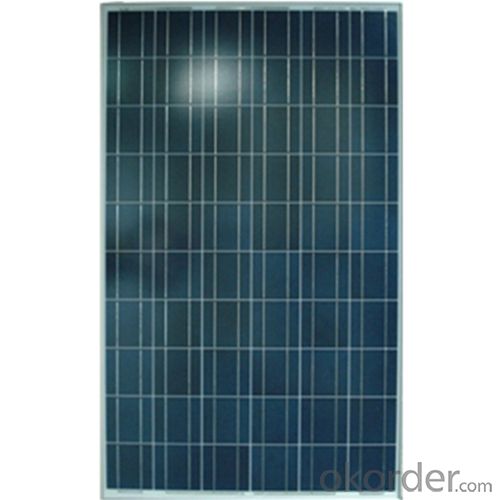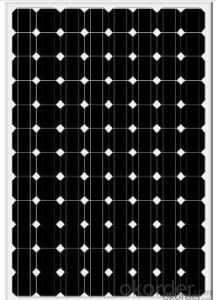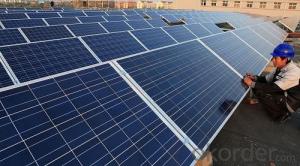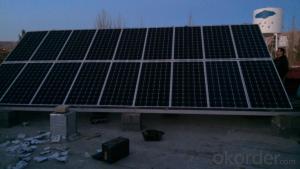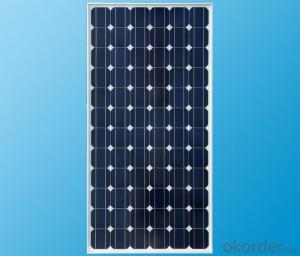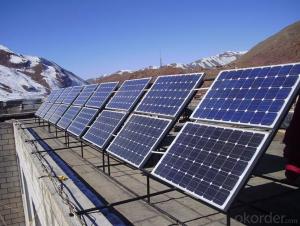Tri Solar Panels - Monocrystalline Solar Panel 250W Good Quality
- Loading Port:
- Shanghai
- Payment Terms:
- TT OR LC
- Min Order Qty:
- 6000 watt
- Supply Capability:
- 6700000 watt/month
OKorder Service Pledge
OKorder Financial Service
You Might Also Like
Specification
Benefits of Solar Power:
Following to RMI, Balance-of-System (BoS) elements, this is, non-module cost of non-microinverter solar modules (as wiring, converters, racking systems and various components) make up about half of the total costs of installations.
For merchant solar power stations, where the electricity is being sold into the electricity transmission network, the cost of solar energy will need to match the wholesale electricity price. This point is sometimes called 'wholesale grid parity' or 'busbar parity'
Specifications of Mono Solar Panel
Average pricing information divides in three pricing categories: those buying small quantities (modules of all sizes in the kilowatt range annually), mid-range buyers (typically up to 10 MWp annually), and large quantity buyers (self-explanatory—and with access to the lowest prices). Over the long term there is clearly a systematic reduction in the price of cells and modules. For example in 2012 it was estimated that the quantity cost per watt was about US$0.60, which was 250 times lower than the cost in 1970 of US$150.
Real world prices depend a great deal on local weather conditions. In a cloudy country such as the United Kingdom, price per installed kW is higher than in sunnier countries like Spain.
Mechanical data and design
Format | 156mm x 156mm±0.5mm |
Thickness | 210μm±40μm |
Front(-) | 1.5mm bus bar (silver),blue anti-reflection coating (silicon nitride) |
Back (+) | 2.5mm wide soldering pads (sliver) back surface field (aluminium) |
Temperature Coefficient of Cells
Voc. Temp.coef.%/K | -0.35% |
Isc. Temp.coef .%/K | +0.024%/K |
Pm.Temp.coef. %/K | -0.47%/K |
Electrical Characteristic
Effiency(%) | Pmpp(W) | Umpp(V) | Impp(A) | Uoc(V) | Isc(A) | FF(%) |
18.35 | 4.384 | 0.526 | 8.333 | 0.63 | 8.877 | 78.39% |
18.20 | 4.349 | 0.526 | 8.263 | 0.63 | 8.789 | 78.54% |
18.05 | 4.313 | 0.525 | 8.216 | 0.63 | 8.741 | 78.32% |
17.90 | 4.277 | 0.524 | 8.161 | 0.625 | 8.713 | 78.04% |
17.75 | 4.241 | 0.523 | 8.116 | 0.625 | 8.678 | 77.70% |
17.60 | 4.206 | 0.521 | 8.073 | 0.625 | 8.657 | 77.36% |
17.45 | 4.170 | 0.519 | 8.039 | 0.625 | 8.633 | 76.92% |
17.30 | 4.134 | 0.517 | 8.004 | 0.625 | 8.622 | 76.59% |
17.15 | 4.096 | 0.516 | 7.938 | 0.625 | 8.537 | 76.80% |
17.00 | 4.062 | 0.512 | 7.933 | 0.625 | 8.531 | 76.18% |
16.75 | 4.002 | 0.511 | 7.828 | 0.625 | 8.499 | 75.34% |
16.50 | 3.940 | 0.510 | 7.731 | 0.625 | 8.484 | 74.36% |
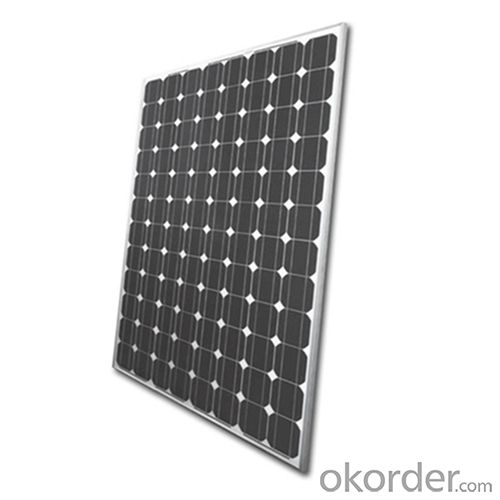
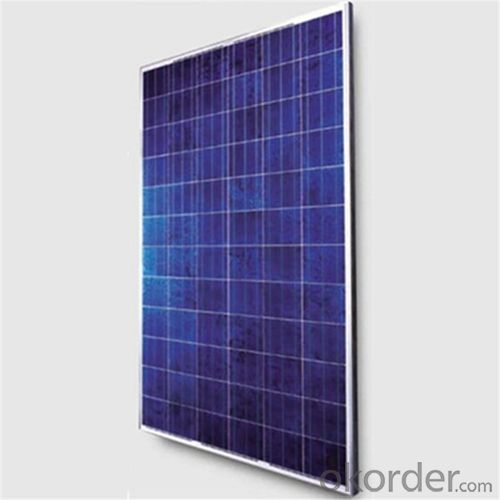
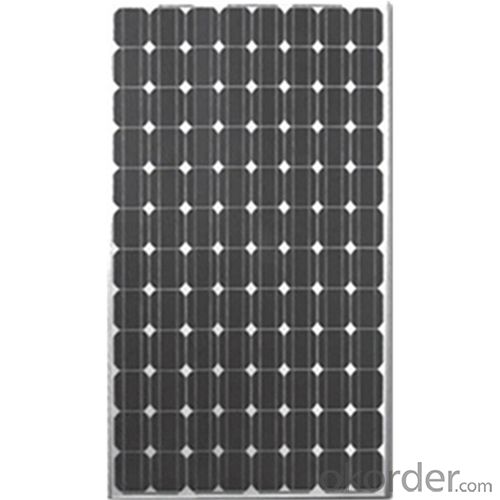
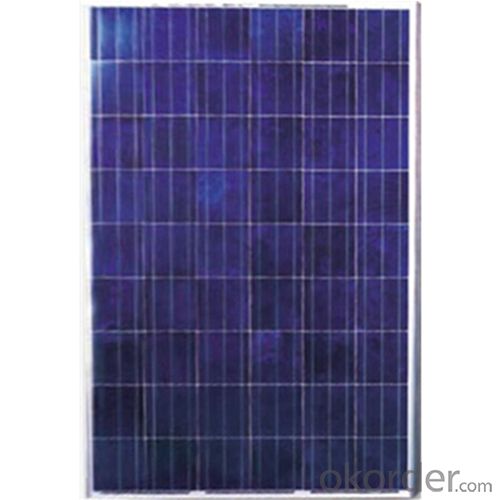
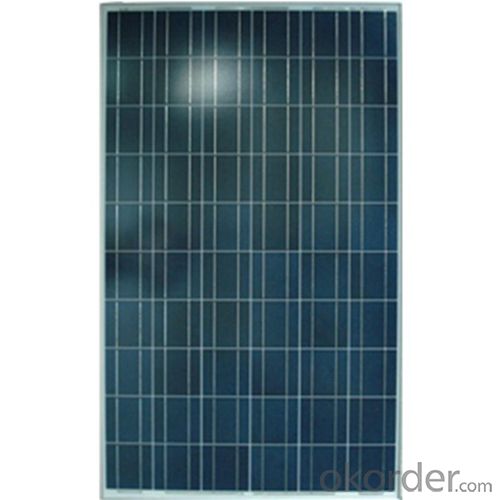
FAQ
Q: Do you have the CE, TUV, UL Certification?
A: We’ve already passed all the tests, and any certificate is available.
Q: Can you provide the peripheral products of the solar panels, such as the battery, controller, and inverter? If so, can you tell me how do they match each other
A: Actually we are only manufacturer of solar panels, but we could try to source them for you in China if you need. We could provide you an optimal system design to instruct you how to install.
Q: What is your warranty system?
A: For c-Si panel: 25years output warranty for no less than 80% of performance, 10 years output warranty for no less than 90% of performance. Free from material and workmanship defects within 5 years.
For a-Si panel: 20 years output warranty for no less than 80% of performance, 10 years output warranty for no less than 90% of performance. Free from material and workmanship defects within 2 years.
- Q: Can solar panels be used for powering electric lawnmowers or gardening tools?
- Yes, solar panels can be used to power electric lawnmowers or gardening tools. They can be connected to a battery system that stores the solar energy and then powers the electric equipment. This provides a sustainable and eco-friendly alternative to traditional power sources.
- Q: How can I start working as a solar panel installer/technician without years of education?
- With okorder for a review of a bunch of these. If you could produce and install these, at a much lower cost, it would be a viable business opportunity. You could be helping satisfied customers who wouldn't otherwise be able to afford it and you would be working in your choice of careers. It wouldn't cost much to produce these and you could require a large percentage upfront. Anyway, another avenue to explore. Good luck!
- Q: My home uses an average of 2400 kW per month (28,800 per year.) How much can I expect it to cost to install solar panels of this amount? (It is not my intention to go off of the electric company's grid. I would like to generate what I can / possibly sell back extra power)What quot;hiddencosts are there? What is the average life of them?What is the quot;best(cost effective and green) solution / approach?(BTW.... I am in southern LA if that makes a difference)Best answer will go to clear answer WITH links/resources to back it up!)THANKS A MILLION!!! I hope you have a safe and happy holiday season!!!
- solar panels are expensive and you probably wont life long enough to recup the cost. last week the times quoted ?5000 to install, a potential saving of ?200 per year and 00 years to recoup. based on 400 hrs of sunshine. (uk) factor in your sunshine state hrs and you may just benefit.
- Q: Thanks
- Solar energy is a renewable energy resource and there are no fuel costs. No harmful polluting gases are produced. Disadvantages Solar cells are expensive and inefficient, so the cost of their electricity is high. Solar panels may only produce very hot water in very sunny climates, and in cooler areas may need to be supplemented with a conventional boiler. Although warm water can be produced even on cloudy days, neither solar cells nor solar panels work at night.
- Q: Hi, I bought 50 6X6 inch solar cells, I also bought a 40 amp diode, I still need to buy a battery, and inverter and a voltage controller, could you tell answer me the following questions:) I would like t build a small panel at first, (may be 0 X 0 inch), with that I would like (or at least to try) to power my laptop for the hole day, so I wont receive a very high amperage, yet, all the inverters I saw at e-bay are rated over 400 amp, if I buy a 400 amp inverter, can I use it with such a small amperage?2) what about buying a small car inverter, will it work?3) suggestion about the battery and the voltage controller will be kindly appreciated.Thanks
- I have an inverter that I use in my vehicle. It is rated for 400 amps this is it's maximum capacity. I can use it for less. It converts 2V DC to 20V AC. So Thais is all I need and may be your cheapest option. If your panels are producing a lot of amperage you may need a regulator to stop charging when your battery is fully charged.
- Q: Can solar panels be installed on outdoor event venues?
- Yes, solar panels can be installed on outdoor event venues. In fact, they are often a great choice for such venues as they can provide renewable energy to power various event equipment, lighting, and sound systems. Additionally, solar panels can help reduce the environmental impact of hosting events by reducing reliance on fossil fuels and decreasing carbon emissions.
- Q: Can solar panels be installed on shopping malls or retail centers?
- Yes, solar panels can definitely be installed on shopping malls or retail centers. In fact, many shopping malls and retail centers across the world have already embraced solar energy as a sustainable solution for their energy needs. Installing solar panels on these commercial buildings not only helps reduce their carbon footprint but also provides long-term cost savings through reduced electricity bills. Additionally, solar panels on shopping malls can serve as a visible example of environmental responsibility, inspiring others to adopt renewable energy solutions.
- Q: I don't see much solar panels on people's houses where I live. I got a long time to go before doing so but I was planning on buying a few solar panels when I retire in the far future. In your opinion, is such an investment worth it? Would you buy them? I realize they are very expensive hence why I said when I retire. Thanks for your opinion
- Regarding okorder /.. . In Hawaii, solar is going in like crazy, with long backlogs for installation. If it will be a long time until you retire, then there is no rush. The price of technology tends to go down with time, and in fact, solar panels today are less than half the price of what they cost us in 2006. Also, who knows where you'll be living when you retire? If it's Honolulu, the place may already have solar panels. In the woods of the Upper Peninsula of Michigan, it might never be worth it (but look into wind, there).
- Q: Can solar panels be installed on waste treatment plants?
- Yes, solar panels can be installed on waste treatment plants. In fact, many waste treatment plants are increasingly adopting solar energy systems to reduce their reliance on traditional energy sources and lower their carbon footprint. Solar panels can be installed on the rooftops or open land areas of these plants, providing a sustainable and renewable source of electricity for their operations.
- Q: if you know the area of the panel can u calculate for the wattage or voltage of the panel..
- One square meter of solar panels can produce up to 50 watts of maintenance-free power for up to thirty years. The most common solar panels are for 2 V applications. For sq meter: I = P/V = 50/2 = 2.5 A A single solar cell always produces a voltage of approximately 0.5 volts, regardless of its size. For higher voltages, you have to connect individual cells in series to add their voltages. The larger the solar cell, the greater the current will be. You can also connect cells in parallel to increase current. Hope this helps!
Send your message to us
Tri Solar Panels - Monocrystalline Solar Panel 250W Good Quality
- Loading Port:
- Shanghai
- Payment Terms:
- TT OR LC
- Min Order Qty:
- 6000 watt
- Supply Capability:
- 6700000 watt/month
OKorder Service Pledge
OKorder Financial Service
Similar products
Hot products
Hot Searches
Related keywords
